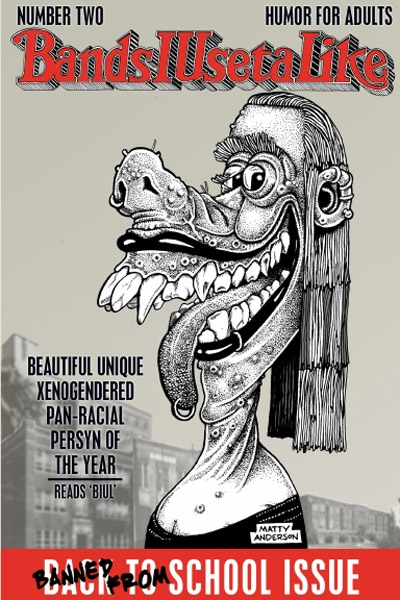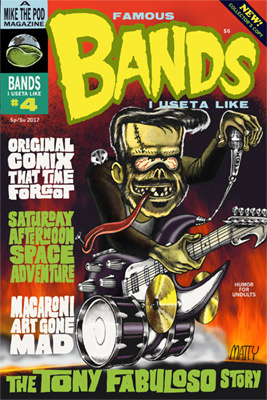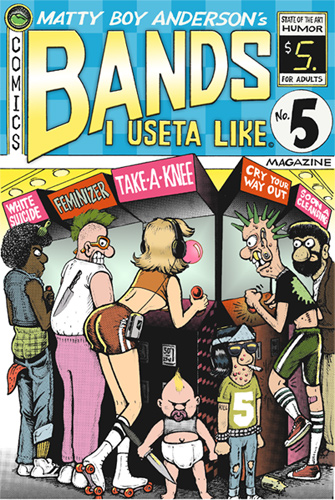As the venerable Star Wars imprint slowly transforms into an empowerment series for little girls who wear costumes and bitter old fanboys, one of my favorite aspects is being scrubbed from the narrative:
Weird, stupid aliens.
I’ll never comprehend the segregationist nature of the “Star Wars fan”. Watching the fandom dismiss George Lucas, the creator of everything they care about, has been like observing a schism of zealots. Since general audiences weren’t born in the 80s, when ripoffs of Star Wars abounded, they gladly accepted a ripoff from J.J. Abrams.
But what’s really annoying, more so than my inability to drop the matter, is the blind ignorance of the obvious messages in the Star Wars prequels. Hack screenwriters will appropriate homilies from the “Original Trilogy” until their fingers fall off, but would you believe that as many lessons exist in episodes 1 to 3?
First off, you have to accept a couple of truths. One is that there’s an unspoken order in which you’re meant to experience Star Wars, over the course of your early life. Like so:
- Phantom Menace is meant to be experienced at 9 years of age, concurrent with Anakin Skywalker.
- Three years later you see Attack of the Clones, at 12.
- Three years after that, Revenge of the Sith, at 15.
- You see A New Hope at either 17 or 18. Heck, you could go 15, but my point here is to go along with the frequency of releases.
- Empire Strikes Back comes when you’re around 21.
- Return of the Jedi has childish elements not just to humiliate the villains, but because at this point, you’re introducing Star Wars to your own child.
Can you see why I find anything after that extraneous? I came to this conclusion after numerous viewings, both in order theatrical (4-5-6-1-2-3) and episodic (1-2-3-4-5-6). I studied the parallels and literary allusions, and researched the six different productions.
Oh, and while doing so I smoked a metric ton of weed.
Look: this was a scientific experiment. This is how I discover that a lot of movies are maligned unfairly. Pot keeps me from criticizing every aspect of what I see on screen, and puts me in the necessary headspace.
For Phantom Menace, the necessary headspace is that of a 9-year-old.
That’s where you need to be to fully appreciate Jar Jar Binks.
I was 27 years old and baked when I first saw Phantom Menace in the theater, with my friend George. It was an awesome enough experience that I’m sharing it with you now. Again. Because it bugs me when things I love are a punchline. For decades.
Anyway; there’s a scene where Jar Jar Binks, a lanky space goof banished from his village for being lethally clumsy, earnestly tries to help service Anakin Skywalker’s “podracer”. Immediately after being warned, he sticks his head in the power coupling while bending over to retrieve a dropped wrench. It doesn’t diminish his brainpower, but his giraffe-like face goes numb, and his long tongue lolls out like a cartoon dog’s.
Dazed, Jar Jar reaches again for the wrench, wedging his hand in the podracer’s thruster. Despite the petulant cries of a thousand fanboys, Anakin does not gun the engine, and Natalie Portman’s Queen Amidala runs over to yank this idiot free. Tongue dangling, Jar Jar gives the thumbs-up, and ambles out of harm’s way.
By this point, George and myself, two fully-grown men, were utterly incapacitated by laughter. Bad, escaped-inmate laughter. Like I thought we might be removed from the premises, as troublemakers. Way past the point where it would be appropriate to be laughing at Star Wars.
See, here’s the thing you forget. Phantom Menace came out in 1999. There were forces beyond Lucas’ control that shaped it, just as with everything Star Wars. A mere five years prior, Forrest Gump won the Oscar for Best Picture; Robert Zemeckis won for directing, and Tom Hanks won Best Actor for playing the titular Gump.
A drawling imbecile, who literally changes history by doddering through it.
That’s the central message of Forrest Gump: stupidity prevails. If you’re dumber than fuck, don’t despair; the world will inevitably be bettered by your incompetence. Forget hard work and perseverance, they’re for suckers and dead people. Better to literally run from your problems until folks accept you. Here’s a two-CD soundtrack you can buy, with all the boring overplayed shit you hear on the radio. Oh, plus Alan Silvestri wringing treacle out of a piano.
Six Oscars.
Other contenders for Best Picture were Pulp Fiction and The Shawshank Redemption, two movies I guarantee you watch more often than fucking Forrest Gump. Gump was so omnipresent he’s a punchline in Fight Club, also from 1999. One of the lesser episodes of The Simpsons is centered around Homer dressed up as Forrest, sitting on that damnable bench.
Was this all due to the popularity of the film? Or was it an orchestrated carpet-bomb of marketing, that burned out at the turn of the century?
I don’t know, I never liked Forrest Gump. If you do, I wonder if you’ve watched it lately. I doubt it, because if you had, you’d notice the not-so-good redubbing of LBJ in the newsreel footage, and the fact that Tom Hanks is talking like Hollywood’s idea of a brain-damaged Southerner.
I lived in Savannah, Georgia while Forrest Gump was shot there. I saw this ridiculous and offensive caricature from the ground up. I nearly worked as an extra on Midnight In The Garden of Good and Evil, which was filmed in Savannah by Clint Eastwood, wherein Southerners are sweaty fornicators, murderous queers and sassy drag queens.
This is standard operating procedure in Hollywood, if not America entirely. The South is reduced to a joke, going back to Looney Tunes and Hee Haw. Look, I’ve spent more of my life in the South than the North. They drive cars and everything here.
Anyway, moving on, Terry Gilliam’s adaptation of Fear and Loathing in Las Vegas hit theaters in 1998, so it was still fresh in my mind when I saw Phantom Menace. George was a big fan too, so when Jar Jar dropped his wrench, I knew, somehow, that he made the same association I had.
Johnny Depp under the influence of adrenochrome, making lizard noises.
A bomb went off inside my brain. I caught a side-eyed glance of George, who was laughing just as spontaneously and hard, and it made it worse. I couldn’t breathe. Jar Jar stuck his hand in the thruster, and I thought, this is what I paid for. This is the most lunatic, fucked-up thing I’ve ever seen. This is what it was like when Jim Henson’s Muppets were part of Star Wars DNA. Honest-to-goodness space goofs, from before the fascistic human Empire installed British actors around the galaxy. An artifact from a time when sci-fi was truly weird.
What were your beefs with Jar Jar Binks? He’s annoying?
He’s supposed to be. He’s so annoying that Jedi can barely stand him. That’s the point; there are morons in life that test your patience. Their ignorance doesn’t mean they should be allowed to die. And you can’t read minds; what you perceive as stupid can be as simple as a social or cultural difference.
Jar Jar Binks was never meant to be the “kid appeal” character; that’s how he was marketed, when the producers started to freak out after Lucas stuck to his guns with new material. Binks is another of Lucas’ literary allusions, like Return of the Jedi and Moby Dick (Weequay=Queequeg, get it? Solo is Ahab?).
Jar Jar is a Gungan. Gunga… n. Gunga galunga.
Gunga Din.
That’s a poem from 1892 by Rudyard Kipling, adapted into a movie in 1939.
Gunga Din was an Indian water-bearer in Kipling’s shitty limerick, abused by English soldiers, and finally killed saving one. The racist soldier who beat him is left to muse upon Gunga’s moral clarity. The theme of the poem is England’s abuse of India and its natives.
Jar Jar Binks is so dangerously incompetent he was cast out of his home town and left to die. When danger approaches, he runs towards it and jumps on the only person who can help him, in a blind panic. He is guileless with good intentions, but his sole talent is diving. Any positives he brings to the table remain to be seen.
As I said, in life, you will encounter monstrously ignorant people that drive you nuts with their stupidity. You will wish for their demise, but they’re a living thing that deserves life no less than you do. Even Obi-Wan Kenobi disparages Jar Jar at first. I mean, he steps in shit and gets farted on. He lacks the sophistication of a hooting seven-foot carpet.
Audiences made it loud and clear that they only want one kind of Star Wars movie: a retread of the 1977 original. That’s all they’ll get, and that’s sad. In Episode I, it wasn’t just cardboard heroes and villains. It was a lustrous tapestry of fanciful imagination. It was mystery that couldn’t be spoiled. Characters had fluid motivations and personalities, based on their experiences. This allowed for a wider spectrum of possibilities. Is it not more fun to imagine Han Solo having adventures into old age, than to have a movie commemorating his demise?
If you can’t understand why I refuse to accept Disney’s “Star Wars” as part of the franchise, remember one thing.
Jar Jar Binks has been trying to teach you about acceptance since 1999.
(The danger of ignorance, too: Binks is the one who unintentionally puts the Emperor into power. That would be the “Phantom Menace”.)


















You must be logged in to post a comment.